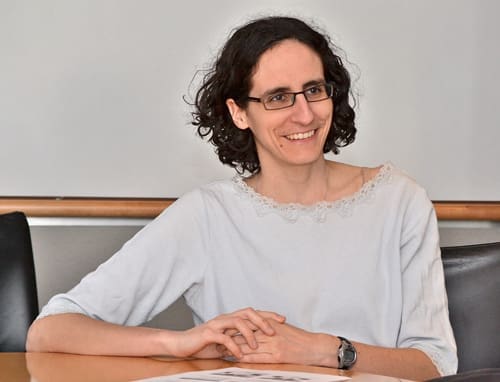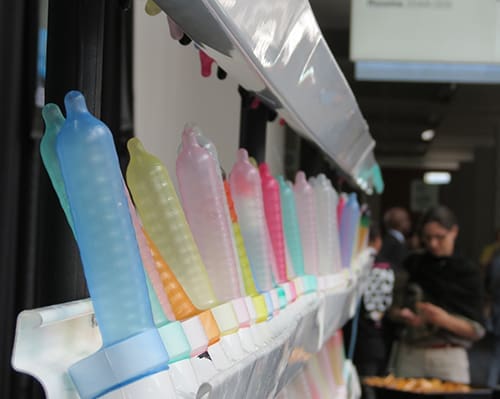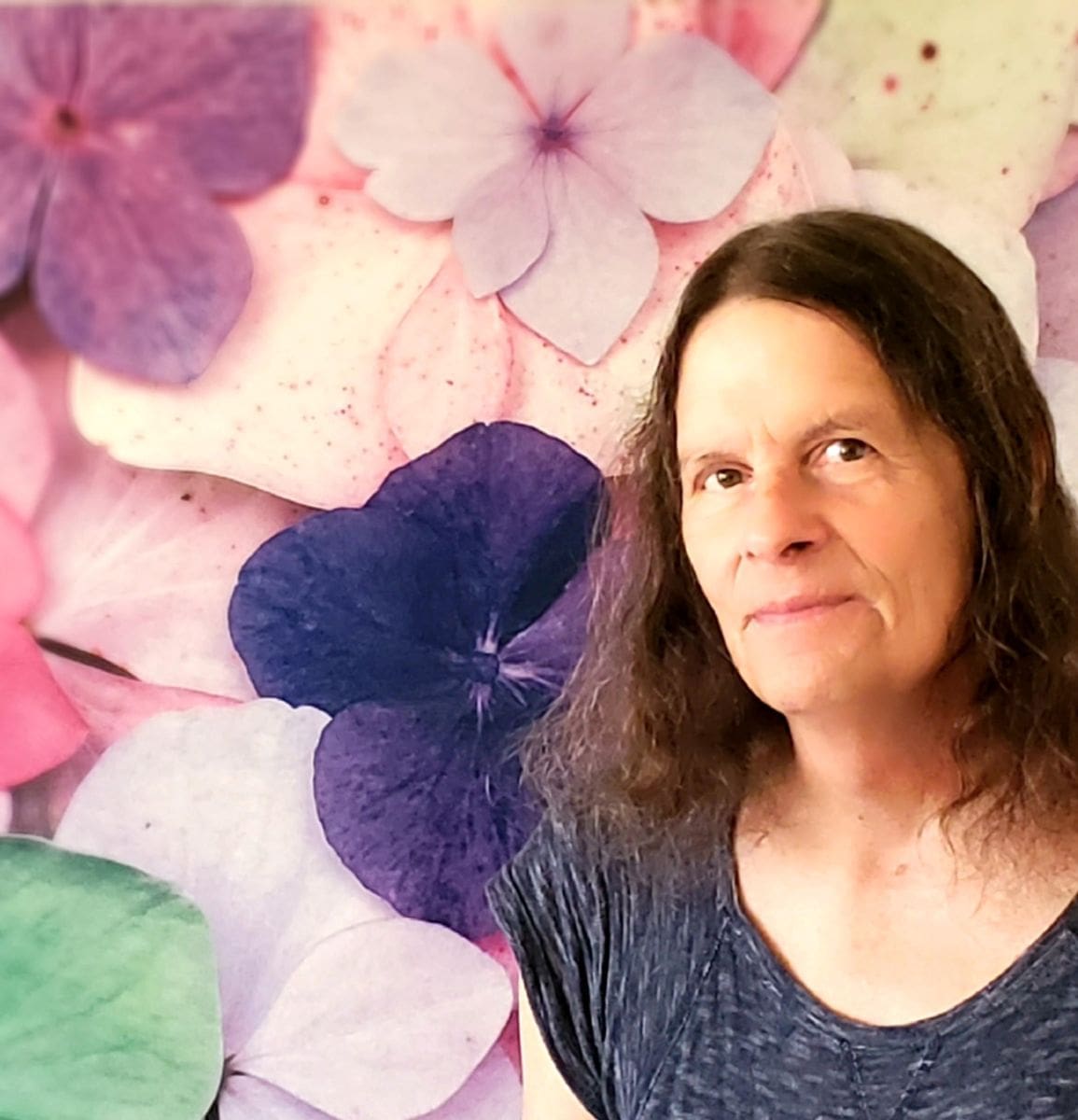
Keri Rainsberger is director of data services at AFC. AFC Photos-Ed Negron
By Eva Westley
It’s not the most glamorous work: keeping track of visits to case managers, trips to the hospital, viral loads and housing applications for the thousands of people with HIV in Chicago.
But with government officials, funders, researchers and the members of the public clamoring for the best information about HIV/AIDS, turning these snippets of data into useful knowledge about the AIDS epidemic is a critical challenge.
Enter Keri Rainsberger.
“I get really excited by solving puzzles and all the little numbers,” said Rainsberger, director of quality assurance and supportive services for the AIDS Foundation of Chicago (AFC). “When you get super excited about really small things you’re a geek, and since I get excited about data, I’m a data geek.”
With her colleague, Hal Barnett, she manages ClientTrack, AFC’s database that holds medical indicators, case management and housing information, and even mental health histories, for over 5,000 people who receive services through AFC’s funded partner agencies.
Rainsberger, 35, has degrees in geography, French, and library science, and originally hails from Columbus, Ohio.
In questions about her personal life, she was soft-spoken, though direct. When the conversation shifted to data, she cracked a wide grin. Rainsberger was ready to talk data. What follows is an edited transcript of the conversation.
****
Inside Story: How would you describe ClientTrack to someone who isn’t familiar with case management in the AIDS sector?
Keri Rainsberger: We track the care and services of over 5,000 clients who receive services through the AIDS Foundation of Chicago’s funded programs. That includes things like case management, but also housing. … Our clients trust us with a lot of data about their mental health history, their substance use history, their general health, their HIV history, who their provider of care is, things like that. That allows us to track what’s going on with the clients that we’re serving.
Part of what we hope to be able to do is then use all this information they’ve trusted us with to actually make improvements in the system. … For example if we see that a lot of our clients have substance use issues, is there maybe funding specifically to get more experience in that? Are those maybe trainings we need to do with the case managers?
Those are things that we’re able to identify because of the data that we’re collecting.
IS: A database like this sounds useful in theory, but what are some of the challenges that you’ve come up against when using it in real life, or in the “wild,” as you say?
KR: With 30-some case managers, each case manager’s going to fill things out slightly differently. And for them it’s not the highest priority to put the data in the database. Their highest priority is making sure that the client in front of them is getting the care they need. There’s all sorts of things like that, whereas when you have kind of a laboratory setting… you know, everything’s set and clear; it’s a little easier to have cleaner data.

Rainsberger, at left, examines data with colleague Hal Barnett.
IS: Many of our partners have multiple databases that they have to enter client data into. Is ClientTrack just another hoop for people to jump through?
KR: Our hope for ClientTrack is that we’ll actually be able to pull information back in from all those other databases… I was working with one of our partners who has their electronic medical record, and they have their client case management database. Their medical providers can’t see their case management stuff, and their case managers can’t see their medical stuff — and yet they’re supposed to be coordinating care!
So if we can figure out a way to bridge those databases then both sides of that clinic will have access to the rich information in both databases… What we hope is that we’ll actually be able to bring that information in to our centralized database and be able to look at things, you know, entirely.
IS: How does ClientTrack affect case managers and their clients?
KR: One of the things that our region has been facing is the HOPWA (Housing Opportunities for People with AIDS) dollars that fund housing for people with AIDS. … The priorities for where that funding is being spent were changed and the system has been losing housing advocates. … What we’re finding is that medical case managers — who are supposed to be helping to coordinate medical care — are having to do housing referrals for their clients because there aren’t housing advocates to refer their clients to.
A majority of our clients are low-income. Even if you don’t have a chronic illness that you’re having to deal with, when you’re low-income just surviving is hard enough. … So obviously you’re going to have housing issues sometimes… a lot of our clients are facing that. Unfortunately, that didn’t result in more housing advocates.
But we were able to say, “This is an impact on the system. This is a major consideration for our clients.”
IS: How can data geeks contribute to the fight against AIDS?
KR: I think there are a lot of ways, because we can actually look at how our system is serving people who are impacted by HIV. And we can see whether there are new needs developing … And also, you know, just figuring out: Are services doing what they’re meant to be doing? If a client comes in without housing, are they leaving with housing? If a client comes in and they’re not in medical care, do they leave in medical care and with their viral load suppressed?
We can identify areas where it’s not working, and get that back to the program teams who can then change things to make sure that the system’s working better.
I guess for me, my best days are when a case manager will send a suggestion like, “Why does ClientTrack do this?” or “Why that?” and I’m able to take their suggestion and turn it into something that works better for them. I know that the less time that they spend dealing with the database the more time they can spend dealing with the client’s issues.
It’s just such a neat feeling to know that because of my work, I made somebody else’s work easier, which means they have more time to focus on more important things than just getting data into a database.
IS: Anything to add?
KR: Data geeks rule!



